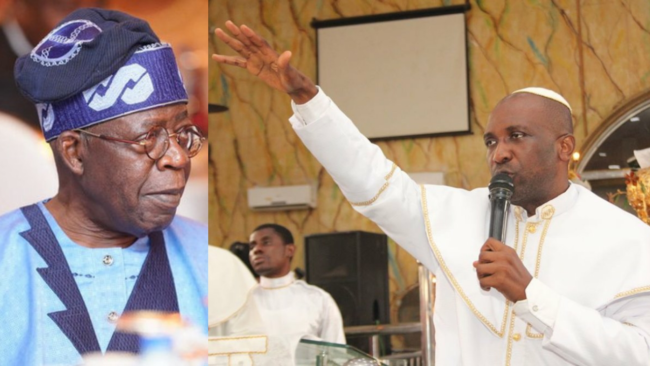Headline
UK Publishes Names Of Dead Nigerians With Unclaimed Estates, Assets

No fewer than 56 dead Nigerian names with reported unclaimed estates and other valuable assets in the United Kingdom have been published by the United Kingdom government.
This was contained in UK’s government Treasury Solicitor website which was last updated on September 8, 2022, as reported by BusinessDay.
What Nigerians in UK, US say about heatwave, hot temperatures
How Asian ship crew killed two stowaway Nigerians in Liberia
Banks to close over depositors increasing demands to withdraw savings in Lebanon.
READ ALSO: King Charles Welcomed In Wales Amid Cheers, Protest
The unclaimed estates have a 30-year time limit from the date of death before it is removed if no person comes to claim the ownership.
Oldest victim
According to the report, one of the oldest affected Nigerians was identified as Mark N’wogo, who died on December 9, 1992, in Surrey, United Kingdom.
But the assets he left behind have gone unclaimed for nearly 30 years, which means that his properties would be surrendered to the British government by December 2022.
He was believed to have served in the Navy, which gave his birth year as 1926, and to have an unspecified family in Sapele, Delta state, but neither this individual nor any others had stepped forward to claim the deceased’s possessions.
The values of these estates are not published; instead, only information about their deceased owners is available.
Familiar name
Another familiar name on the list is Victor Adedapo Olufemi Fani-Kayode, who is alleged to have died on August 15, 2001, in Birmingham, with the Birmingham City Council identified as the informant.
The Treasury Solicitor released a list of untaken estates that had recently been mentioned but had not yet been managed, as well as past instances that had been administered but had not yet been claimed within the time constraints for doing so.
Estates with a 30-year time limit from the date of death are likewise exempted.
“We frequently hear of accounts in financial institutions belonging to deceased people that are never claimed and are never made public by these institutions. I believe we can take a leaf out of the UK’s book in this area to promote transparency,” says Olaitan Akinnubi, a Lagos-based lawyer.
“I believe that making information about deceased people and their unclaimed assets public in the UK is something that is worthwhile.”
However, most of the deceased have little information on relatives to whom their assets may be transferred, and for those with available information, it is quite inadequate and hard to trace beneficiaries.
Other names
The list includes a certain Arbel Aai’Lotta’Qua Abouarh that died on February 5, 1998, in Chiswick, London, and is thought to have different variations in the spelling of his name. Information on file indicates that he may have been married in December 1959 (place unknown) and had four children from the marriage.
It is further stated he was born in Northern Nigeria on or about the 3rd March 1930 and his parents are said to be Alfred Hallim Abouarh and Addanue Abouarh nee Onwudachi. Information on file also indicates that he had a sister (deceased) and a twin brother (possibly living in Germany).
There is also Paul (Akinola) Bernard who was born in Lagos and died in London on October 12, 2008. Available information suggests he married a 2nd wife, Marie Vidarte de Castro in 1970, but she also died in August 2008. He is believed to have a daughter from his first marriage which ended around 1970.
Born in Ibadan on August 2, 1958, John Olaolu Bankole died in London on April 27, 2010. The information available includes a Decree Absolute dissolving the deceased’s marriage on 11 November 2002, while his marriage certificate states that his father’s name is Oladipupo Bankole.
While Enwukwe Graham Kwedi Edde, who died on January 6, 2011, in London is only known to have been born in Diobu, River State, Charles Ayodele Aliu, who died on March 31, 2011, in Solihull, West Midlands is said to “have a possible cousin in Nigeria”.
READ ALSO: Queen Elizabeth II’s State Funeral – What To Expect
Sunny Eyo Edem, who died on September 16, 2011, in Fulham is believed to have a “Possible son and relatives in Calabar, Nigeria”. Also, William Kadry, who died on November 1, 2011, in Fulham, is said to have been born in Iponri, Lagos State, and his father Akanni Kadiri died in 1941, while his mother Muniratu Kadiri died in 1958.
Recent additions to the list include Solomon Adekanmibi who died on January 31, 2021, in Colchester, Essex; Eugene Bucknor, who died on March 2, 2021, in Brockley, London; Jeff Adhekeh, who died on March 12, 2021, in South Kensington, London and Louisa Holmes, who died on May 24, 2021, in Cheam Sutton.
According to Akinnubi, the legal practitioner, “For the relatives of any such deceased person or any other person entitled to the estate of any of the listed deceased persons, it is advisable that they engage a Probate Solicitor or Practitioner in the UK to help and guide them through the process of obtaining letters of administration in respect of the deceased person’s Estate in the UK.”
Headline
Russia Deploys Navy To Guard Venezuelan Oil Tanker Chased By US In Atlantic

Russia has deployed naval assets to escort a sanctioned oil tanker across the Atlantic following reported moves by the United States to seize the vessel.
US forces were said to be preparing to board the ship, which has a history of transporting Venezuelan crude oil and was last believed to be sailing between Scotland and Iceland.
CBS News reported that Russia stepped in to protect the tanker, raising the prospect of a direct confrontation between the two powers at sea.
READ ALSO:Russia Calls up 135,000 Military Personnel
By sending naval ships into the North Atlantic, Russian President Vladimir Putin is signalling to United States President Donald Trump that any US action would carry consequences, coming after the US president threatened that he might use the military to seize Greenland.
The tanker, currently empty, previously operated under the name Bella 1. Last month, the US Coast Guard attempted to board it in the Caribbean with a warrant over alleged breaches of US sanctions and claims that it had shipped Iranian oil.
The vessel later changed course, renamed itself Marinera and reportedly reflagged from Guyana to Russia.
READ ALSO:Venezuela Frees Eight Opposition Leaders
Trump last month said he had ordered a ‘blockade’ of sanctioned oil tankers entering and leaving Venezuela, a policy the government in Caracas branded ‘theft’.
Ahead of the US seizure of ousted Venezuelan leader Nicolás Maduro on Saturday, Trump accused the country’s government of using ships to smuggle drugs into the United States.
Two US officials told CBS News on Tuesday that American forces were planning to board the Marinera, adding that Washington would prefer to seize the tanker rather than sink it.
Russia’s Foreign Ministry said it expects Western countries to respect principles of freedom of navigation.
(Daily Mail News)
Headline
UK Introduces Powers To Seize Phones, SIM Cards From Illegal Migrants

The United Kingdom has rolled out expanded enforcement powers allowing authorities to confiscate mobile phones and SIM cards from migrants who enter the country illegally.
The new measures, which do not require an arrest, came into force on Monday at the Manston migrant processing centre in Kent and represent a significant tightening of border controls.
According to the Home Office, the powers are intended to support intelligence-gathering operations aimed at disrupting criminal networks that organise and profit from dangerous Channel crossings.
Officials at the centre are equipped with technology that enables them to extract and analyse data from seized devices, a move the government says will help track and dismantle smuggling rings.
READ ALSO:Russia-Ukraine War: Pope Leo Calls For Global Christmas Truce
Under the revised rules, migrants are permitted to be asked to remove outer garments if there is suspicion that phones are being concealed.
In certain circumstances, officers may also check mouths for hidden SIM cards or small electronic items.
The National Crime Agency said information recovered from devices could accelerate investigations and improve the effectiveness of action against organised crime groups.
Border Security Minister Alex Norris said the policy was necessary to regain control of the UK’s borders and confront human trafficking operations.
“We are committed to restoring order and tackling the people-smuggling gangs behind this lethal trade,” Norris said.
READ ALSO:
“These stronger laws give authorities the tools to disrupt, intercept and dismantle these networks more quickly and effectively,” he added.
The legislation also introduces tougher criminal penalties linked to illegal crossings.
Individuals found storing or supplying boat engines for unauthorised journeys could face prison terms of up to 14 years, while those involved in researching equipment or plotting routes may be liable to sentences of up to five years.
Government officials stressed that the powers would be exercised with discretion.
READ ALSO:UK Unveils Record-breaking Bid For 2035 Women’s World Cup
The Minister for Migration and Citizenship, Mike Tapp, said devices could be returned depending on individual circumstances and the relevance of the information obtained.
“If a device may contain intelligence that helps combat smuggling, it is right that it can be seized,” Tapp said, adding that the approach would not undermine compassion toward migrants.
However, humanitarian organisations have expressed unease about the impact of the policy.
The Refugee Council warned that mobile phones often serve as vital lifelines for migrants, enabling contact with family members and access to support services, and urged authorities to ensure the measures are applied in a proportionate and humane manner.
Headline
PROPHECY: Primate Ayodele Reveals Trump’s Plot Against Tinubu

Primate Ayodele and Tinubu, Tinubu’s rice palliative, Primate Ayodele to Tinubu
Tinubu and Primate Ayodele
The leader of INRI Evangelical Spiritual Church, Primate Elijah Ayodele, has warned President Bola Ahmed Tinubu that US President Donald Trump is after removing him from office.
This comes amid the removal of Vanezuelan President Nicolás Maduro by Donald Trump.
Primate Ayodele, in a statement signed Sunday by his media aide, Osho Oluwatosin, made it known that the US President has ‘caged’ Tinubu and his plan is to ultimately see that he is removed from office.
READ ALSO:Primate Ayodele Releases Fresh Prophecies On FIRS, FAAN, Others
He stated that the support the US is giving Nigeria to fight insecurity isn’t for nothing other than ways to penetrate the government.
“Trump is adamant to remove President Tinubu. America will be part of those who will be against Tinubu. You may not see it as I am being shown, and that’s why I am saying Trump is after removing Tinubu, that’s it and nothing more.”
The cleric made it known that, despite US’ help, Nigeria will continue to fight insecurity, but the ulterior motive of the US President isn’t about ending insecurity in the country.
READ ALSO:Guber Polls: Primate Ayodele Releases Prophecies On Anambra, Ekiti, Osun
“Nigeria will still continue to fight insecurity, but either they fight it or not, Trump is focused on removing Tinubu from office, but he doesn’t know it yet. He isn’t after ending insecurity in the country, he knows what he wants and won’t stop at nothing towards achieving it.”
He urged the president to take a bold political step to overcome the plans of the US president; otherwise, he will end up succeeding with his plans.
“Tinubu must take a very bold step to overcome the plans of Trump, because he has caged him already. Tinubu must not relent his efforts and bring up strategies for him to succeed otherwise, he would be at the losing end while his defeat would be celebrated,” he added.

 News3 days ago
News3 days agoWhat I Saw After A Lady Undressed Herself — Pastor Adeboye

 Headline3 days ago
Headline3 days agoPROPHECY: Primate Ayodele Reveals Trump’s Plot Against Tinubu

 Metro3 days ago
Metro3 days agoArmed Robbers Shot PoS Operator To Death In Edo

 Metro3 days ago
Metro3 days agoJoint Task Force Kills 23 Bandits Fleeing Kano After Attacks

 Politics3 days ago
Politics3 days ago2027: Rivers APC Pledges To Follow Wike’s Instructions

 Metro3 days ago
Metro3 days agoGunmen Demand N200m Ransom For Kidnapped Brothers In Edo

 Metro2 days ago
Metro2 days agoAAU Disowns Students Over Protest

 Entertainment3 days ago
Entertainment3 days agoPHOTOS: Anthony Joshua Makes First Social Media Post After Surviving Deadly Car Crash

 Metro2 days ago
Metro2 days agoEdo: Suspected Kidnappers Kill Victim, Hold On To Elder Brother

 Politics3 days ago
Politics3 days agoWhy Kano Governor Postponed Formal Defection To APC






























